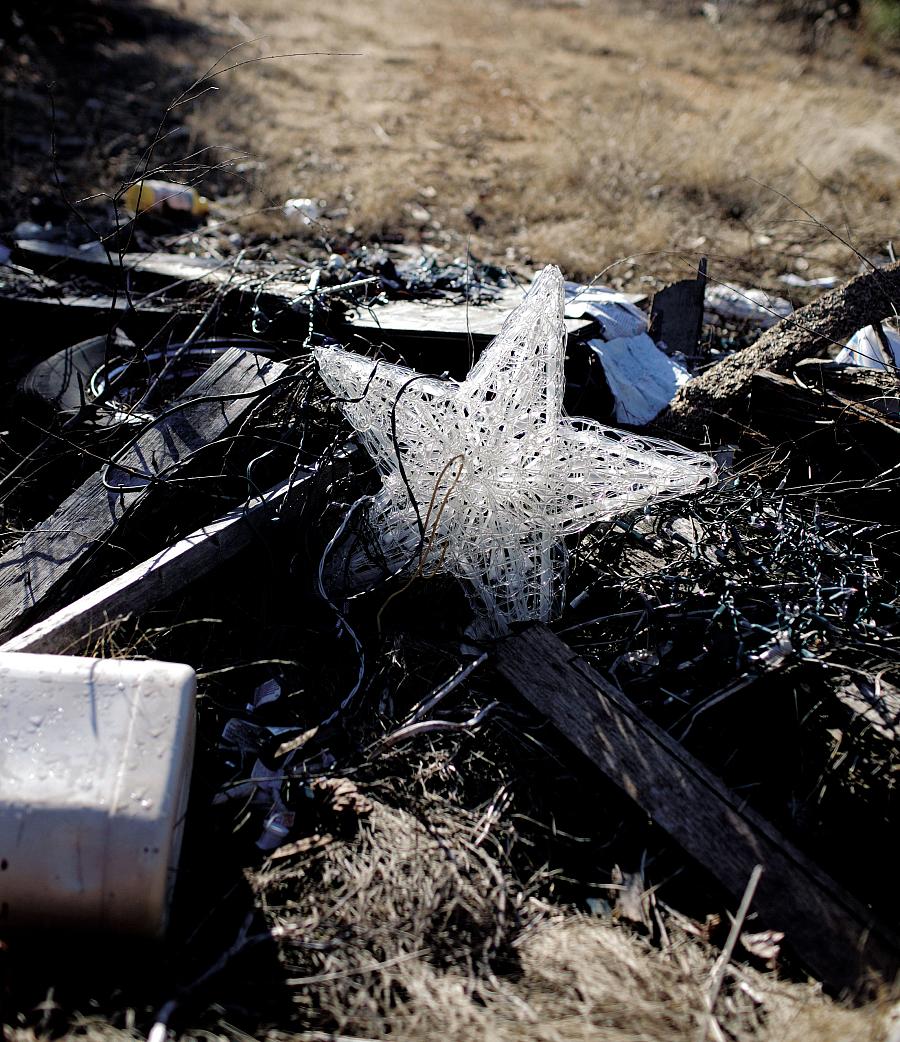The Waste Land
The people of Lincoln Heights live among three city dumps. This is the story of their war on trash.

When you enter Lincoln Heights, you may not see the old dumps festering beneath the weedy vacant lots. But you will see trash—lots of it. And abandoned homes, their skeletons riddled with overturned furniture, old mattresses and other garbage that mars nearly every corner. Drive along Branch Avenue, Lincoln Heights' main drag, and you soon cross Chockoyotte Creek. Its sluggish waters are choked with yard debris and discarded blue barrels.
For the past 70 years, Roanoke Rapids, a small city in Halifax County near the North Carolina-Virginia border, has regularly dumped on its neighbor, Lincoln Heights, a historically African-American community of about 400 people. Although Lincoln Heights has always been outside the Roanoke Rapids corporation limits, it is home to three of the city's former, unregulated dumps and an existing yard waste facility. Most recently, city officials targeted the area to be the site of a proposed 7,000-square-foot waste transfer station, where trucks would unload garbage and temporarily store it before shipping it to regional landfills.
While many Roanoke Rapids officials, including the current mayor and most council members, have declined to be interviewed by the Indy, meeting minutes, documents and reports show the city's disregard for the people living in Lincoln Heights. In addition, documents reveal that a waste transfer station is unnecessary and even financially unwise.
However, a few community activists have not only battled the waste transfer station but also are lobbying state, federal and local officials to help them clean up and rebuild their area. Florine Bell, who lives in Roanoke Rapids, is the de facto ambassador for Lincoln Heights, organizing neighbors, talking to property owners and monitoring conditions in the community.
"It's a jungle here," Bell says, as she drives through Lincoln Heights. "You've got burned-out houses everywhere, and a waste transfer station will only bring trouble to this community: roaches, rats and buzzards."

